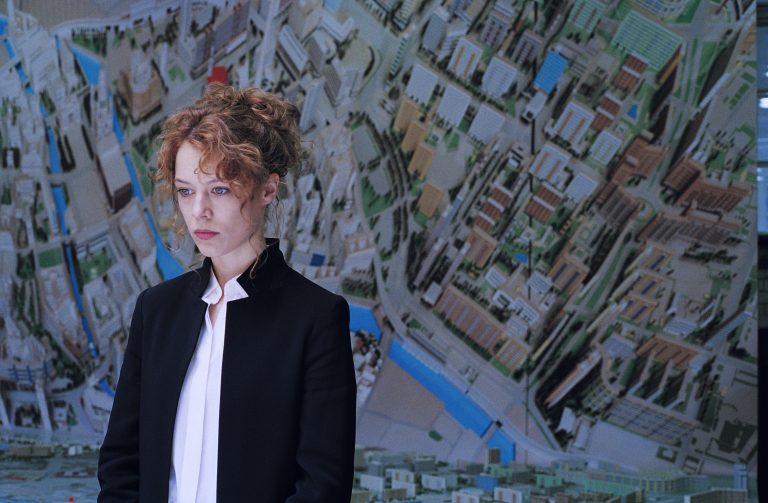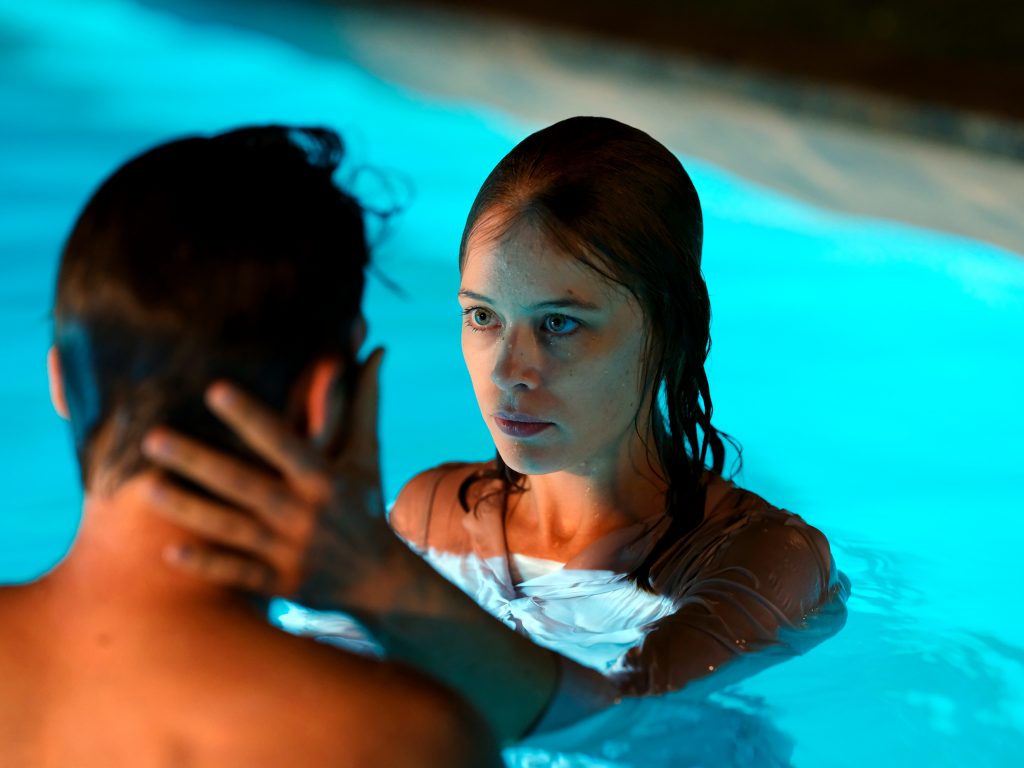
Water sustains life, and it also has many other properties. There are a number of animals that need to be in water in order to survive, an entirely different state than humans, who drink water and swim in it. There are mythical creatures, both fearsome and beautiful, that call the water their home, at least in fabled stories. Among them is the mysterious water nymph, the undine, which has been adapted in modern cinema into works as diverse as The Little Mermaid and Ondine. Her latest appearance comes in the German film Undine, which sets its story in modern-day Berlin.
Undine (Paula Beer) is a historian who gives frequent tours to visitors about the urban development of her city. After the hapless Johannes (Jacob Matschenz) leaves her, Undine meets Christoph (Franz Rogowski), a diver who explores what lies underneath the ground that serves as Undine’s primary focus. Their first interaction takes place in a café where a fish tank bursts open, an indicator that Undine is not merely human but one with the water in a way that defies logic and reasonable explanation.
This film smartly presents a fantastical premise and continually tethers it to reality in a way that forces audiences to doubt the validity of what they’re seeing and grapple with its inherent contradictions. At one point, Christoph asks Undine to give her signature tour as a sort of foreplay, and there’s an almost monotonous nature to her rehearsed script that covers a good deal of history and structural intent. What she has researched and internalized so well is entirely factual and detailed, which stands sharply apart from the ambiguous and magical possibility of Undine’s identity as something that can’t be understood in a literal way.

There is no attempt to acknowledge what’s real in this film, which manages to be more alluring than frustrating. Undine notices moments that don’t seem to make sense but doesn’t stop to dwell on how to process them. Her passion for Christoph is unmistakable and immutable, and he is far superior in every way to Johannes, who doesn’t even try to see Undine as anything more than the object of his affection who doesn’t reciprocate his feelings. Christoph is far more intrigued and bewildered, unable to resist how drawn he is to her and willing almost to do anything for her.
Unexpected humor helps to balance the mysterious drama that unfolds over the course of this film’s ninety-minute runtime. Most memorable among those moments is one that finds Christoph trying to resuscitate Undine after he finds her motionless in the water during a dive and singing Stayin’ Alive to himself to keep count. Undine seems particularly amused by the employment of that unserious technique, and that levity helps to drive a film that might otherwise take itself far too seriously.
Unlike The Shape of Water, a film that leans into its fantasy elements and accepts them fully, this film simply allows its plot to play out without breaking down the supernatural components that might seem jarring to these characters who live an otherwise normal life. Not addressing its subtler meanings is effective, allowing audiences to draw their own conclusions about what Undine’s journey means and how much fate plays a role in the actions of anyone involved.
Paula Beer’s central performance, which won her the European Film Award for Best Actress and reteams her with Transit director Christian Petzold, is key to this film functioning as it does, offering a clever, involving, and oddly humorous take on an ancient tale that is just as beautiful as it is haunting.
Grade: B+
Undine debuts in theaters and on VOD on Friday, June 4th.

